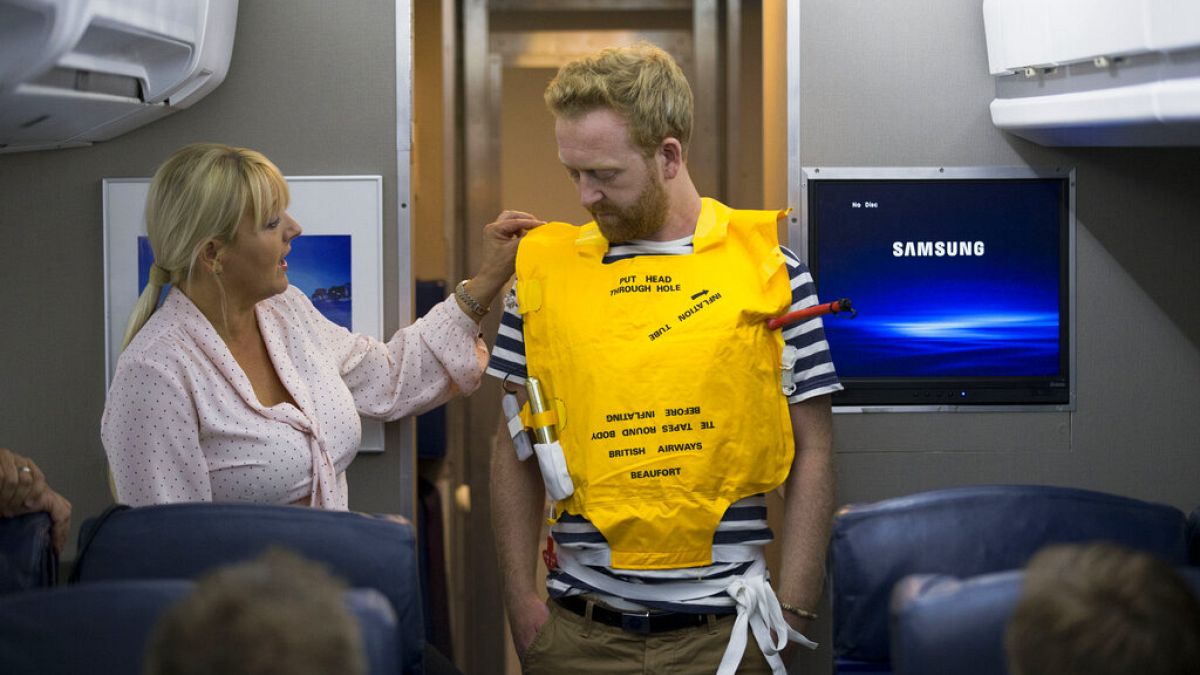Middle East crisis could spark new wave of refugees to Europe: UN

A representative for the UN’s refugee agency told Euronews that Europe could be seen as a refuge amid fears of a growing humanitarian catastrophe in the Middle East, prompted by the conflict between Israel, Iran, Lebanon and Hamas.
The UN has warned that a new wave of asylum seekers could try to reach its shores amid the escalating crisis in the Middle East, which has seen Israel invade southern Lebanon and Iran fire missiles at Israel, against the backdrop of the ongoing Israel-Hamas war.
In an interview with Euronews, Ivo Freijsen, the UNHCR representative in Lebanon, said that the easiest option for those fleeing Israel’s advance in the country would be to go somewhere else within Lebanon or cross the border to Syria.
“Otherwise, the options would be to go to Cyprus or Europe by boat,” he said.
Freijsen highlighted that nowadays it is much more expensive, risky, logistically difficult, and less safe to choose Europe as a destination. However, many would still see it as an option despite the costs associated with it.
“For many, it is extremely expensive. I’ve heard of outrageously high prices that people now have to pay to get on a boat to Europe,” he said.
Israel launched its ground incursion on Tuesday, which followed 10 days of airstrikes that have already displaced one million people in Lebanon — about 20% of the country’s population, according to local authorities.
Lebanon is also home to 1.5 million Syrian refugees and Beirut faces a very fragile political and economic situation under an interim government.
Despite Syria being ravaged by a civil war that began in 2011 and suffering its own humanitarian crisis, many Syrians and Lebanese citizens themselves are now seeking refuge there.
“The positive side is that the Syrian government is making things easier in terms of entry formalities, and it’s faster to cross the border, with shorter queues,” Freijsen explained, with the UN refugee agency and the Red Crescent trying to assist on the Syrian side of the border.
‘We urgently need $425 million’
Despite the presence of many aid agencies in Lebanon, whose last major conflict with Israel took place in 2006, resulting in around 1,000 deaths in one month, financial resources are scarce.
The international community needs to dramatically increase its support to ensure basic services and infrastructure are provided, according to Freijsen.
“We have been preparing for a greater level of assistance since October 7th last year [when Hamas attacked Israel], but we do not have enough,” he said. “All our programmes, along with those of many other organisations, need more funding.”
“We launched an appeal together with the government earlier this week because we urgently need $425 million [€423 million] for a range of sectors across all agencies,” he added.
The European Commission announced on Sunday that it would provide an additional €10 million in humanitarian aid. The European Union has repeatedly called for a ceasefire in Gaza and now in Lebanon, but more diplomatic pressure is essential.
“We have no influence in this area. As humanitarians, we can only highlight the consequences of decisions not being made and the lack of change,” Freijsen said. “If that remains the case, we need to prepare for an increasingly large and precarious humanitarian catastrophe.”
What if the conflict drags on?
The Israeli military has stated that its ground operation in Lebanon is aimed at destroying the infrastructure used by Hezbollah to attack its citizens across the border, and that it does not plan a larger invasion.
However, Iran’s missile strike on Israel on Tuesday has escalated the conflict further. For aid agencies, the coming winter could make their operations even more challenging.
“There is a huge amount of work to be done to ensure people have decent shelter and access to essentials like food and water,” Freijsen said. “We face immense challenges in the health sector, including mental health care.”
“Winter is going to be particularly difficult, especially in terms of shelter, so we need to collectively start thinking about the longer-term consequences,” he added.
World News || Latest News || U.S. News
Source link



